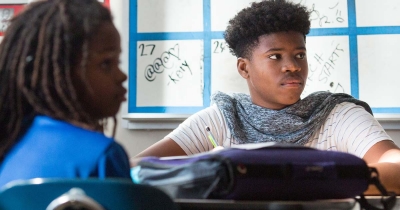Executive Extra
Monthly content focused on leadership exclusively for the Executive members of NAA.
The Role of OST Workers During the Pandemic
Monday, 10 August 2020 16:00The effects of the COVID-19 pandemic have brought many changes to the delivery strategy for school-day and out-of-school time (OST) programs.
Skilled Professionals, Not Superheroes
Monday, 10 August 2020 15:57According to Stan Lee, former editor and publisher of Marvel comics, a superhero is a person who does heroic deeds and has the ability to do them in a way a normal person couldn't.
How to Select an Equity Consultant
Wednesday, 15 July 2020 00:00The current pandemic and recent uprisings calling for racial justice have magnified long-standing inequities and brought heightened awareness for the need to put racial equity at the forefront.
Recommendations for Supporting Emerging Leaders of Color
Tuesday, 14 July 2020 12:15As NAA embarks on a PLC for supporting afterschool leaders of color, the research literature and lessons learned from other leadership development programs, including CalSAC's Leadership Development Institute (LDI), yield several recommendations:
Explicit Policies for Leadership Diversification
Tuesday, 14 July 2020 12:13Organizational policies can support and strengthen the racial diversity of afterschool leaders. Afterschool organizations need to:
Leading During Traumatic and Triggering Events
Thursday, 11 June 2020 11:55Tragic events that occur in the world around us, such as murders, violence, serious injustice, or cultural breaches can have an intense impact on us at work.
Recognizing the Role of Afterschool and Summer Programs and Systems in Reopening and Rebuilding
Thursday, 11 June 2020 11:30The need for safety, support, and trusting reciprocal relationships becomes even more important now as we work to rebuild and return stronger than before COVID-19.
When You Know Better, You Do Better
Thursday, 14 May 2020 00:00"Causenetic"—a monthly podcast from YMCA of Metropolitan Dallas—led by cause driven leaders, Keith Vinson and Rodrigua Ross—recently welcomed NAA Board Member, Tasha Franklin Johnson Ph.D.
Working Together to Create Unprecedented Solutions
Thursday, 14 May 2020 00:00School systems around the country are making plans to reopen in the fall. Employers are beginning to call employees back to work. What does this mean for afterschool?
Support in Response and Recovery
Wednesday, 15 April 2020 00:00During a recent web conference with the Grantmakers for Education OST Funders Network, National AfterSchool Association President & CEO Gina Warner and Isabelle Mussard, leader of NAA's California State Affiliate, provided an update on the work being done in the afterschool field during the uncertain time of COVID-19.
National AfterSchool Association • 2961A Hunter Mill Road, #626 • Oakton, VA 22124 • info@naaweb.org










